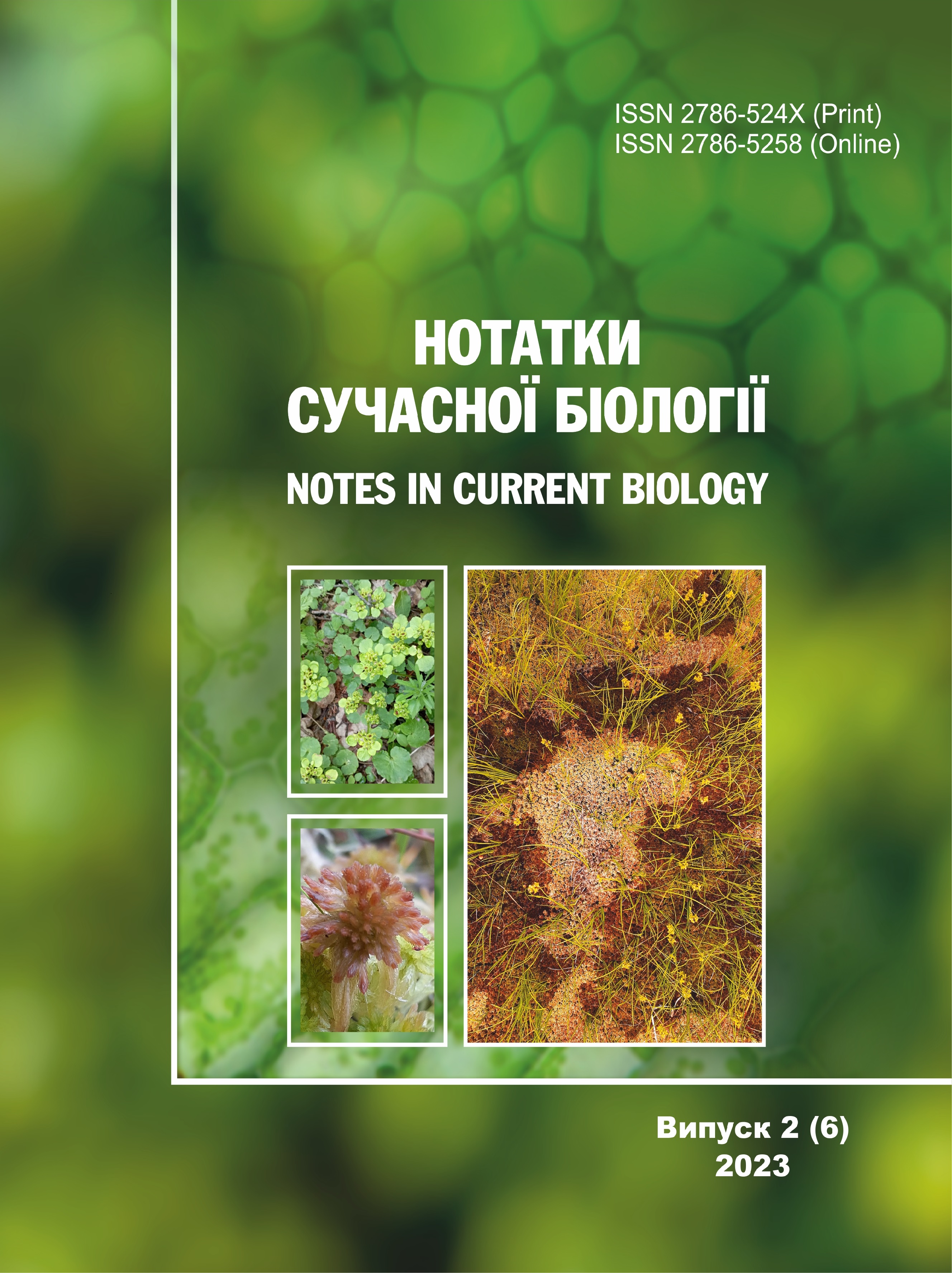The role of insulin resistance and oxidative stress in the mechanisms of arterial hypertension development
DOI:
https://doi.org/10.29038/NCBio.23.2-6Keywords:
oxidative stress, insulin resistance, arterial hypertension, lipid and protein oxidation products, antioxidant enzymes, superoxide dismutase, catalase.Abstract
Hypertension is a pathophysiological process associated with morphological and functional disorders in cellular structures that lead to progressive imbalance of the cardiovascular system of the organism. The purpose of the study was to study the role of insulin resistance and oxidative stress in the mechanisms of development of arterial hypertension. The study included 55 patients with controlled arterial hypertension aged 57.3 ± 4.5 years. The content of glucose, insulin, products of free radical oxidation of lipids and proteins, and the activity of antioxidant protection enzymes were determined in the patients' blood. According to the results of determining the content of glucose, insulin and calculating the HOMA index, patients were divided into two groups - patients with controlled arterial hypertension without and with insulin resistance. An increase (p ≤ 0.05) in the content of primary (diene conjugates) and secondary (TBA-positive products) lipid oxidation products, protein oxidation products in the blood serum of patients with arterial hypertension without and with insulin resistance was demonstrated. Higher levels of lipid and protein oxidation products (p ≤ 0.05) were observed in patients with hypertension and insulin resistance compared to patients with hypertension without insulin resistance. A decrease (p ≤ 0.05) in the activity of antioxidant protection enzymes - superoxide dismutase and catalase in patients with arterial hypertension without and with insulin resistance was also shown. In patients with arterial hypertension and insulin resistance, the decrease in the activity of these enzymes was significantly greater (p ≤ 0.05) compared to patients with arterial hypertension without insulin resistance. Taking into account the obtained results, it is necessary to distinguish between patients diagnosed with hypertension, depending on the presence or absence of insulin resistance. Patients with hypertension and insulin resistance require a complex approach to treatment, as they have more profound changes in metabolic processes, in particular, oxidative metabolism. Insulin resistance and arterial hypertension are mutually reinforcing, therefore, for effective treatment and prevention of further complications, it is necessary to combine means and approaches to influence each of these links to more effectively prevent the development of metabolic disorders in the orgsnism.
References
Tousoulis, D. Arterial hypertension: New concepts in diagnosis and treatment? Hellenic J Cardiol. 2020, 61 (3), pp 145–147.
Silva, B. V.; Sousa, C.; Caldeira, D.; Abreu, A.; Pinto, F. J. Management of arterial hypertension: Challenges and opportunities. Clin Cardiol. 2022, 45 (11), pp 1094–1099.
Kućmierz, J.; Frąk, W.; Młynarska, E.; Franczyk, B.; Rysz, J. Molecular Interactions of Arterial Hypertension in Its Target Organs. Int J Mol Sci. 2021, 22 (18), p 9669.
Griendling, K. K.; Camargo, L. L.; Rios, F. J.; Alves-Lopes, R.; Montezano, A. C.; Touyz, R. M. Oxidative Stress and Hypertension. Circ Res. 2021, 128 (7), pp 993–1020.
Xu, D.; Hu, Y. H.; Gou, X.; Li, F. Y.; Yang, X. Y.; Li, Y. M.; Chen, F. Oxidative Stress and Antioxidative Therapy in Pulmonary Arterial Hypertension. Molecules. 2022, 27 (12), p 3724.
Prado, A. F.; Batista, R. I. M.; Tanus-Santos, J. E.; Gerlach, R. F. Matrix Metalloproteinases and Arterial Hypertension: Role of Oxidative Stress and Nitric Oxide in Vascular Functional and Structural Alterations. Biomolecules. 2021, 11 (4), p 585.
Kosmas, C. E.; Bousvarou, M. D.; Kostara, C. E.; Papakonstantinou, E. J.; Salamou, E.; Guzman, E. Insulin resistance and cardiovascular disease. J Int Med Res. 2023, 51 (2), p 3000605231164548.
Usui, I. Hypertension and insulin resistance in adipose tissue. Hypertens Res. 2023, 46 (6), pp 1478-1481.
Vasylchenko, V. S.; Korol, L. V.; Kuchmenko, O. B.; Stepanova, N. M. The oxidative status in patients with chronic kidney disease. Ukr. Biochem. J. 2020, 92 (5), pp 70–77.
Lipkan, N. G.; Kuchmenko, O. B.; Mkhitaryan, L. S. Aktyvnist indutsybelnoi NO-syntazy ta vmist tsytrulinu v syrovattsi krovi yak markery imunozapalnoi aktyvatsii ta oksydatyvnoho stresu pry khronichnii sertsevii nedostatnosti [Inducible NO-synthase activity and citrulline content in blood serum as markers of immune-inflammatory activation and oxidative stress in chronic heart failure]. Visnyk medychnykh i biolohichnykh doslidzhen. 2021, 4 (10), 46–52. (in Ukrainian)
Onyango, A. N. Cellular Stresses and Stress Responses in the Pathogenesis of Insulin Resistance. Oxid Med Cell Longev. 2018, p 4321714.
Sinha, N.; Dabla, P. K. Oxidative stress and antioxidants in hypertension-a current review. Curr Hypertens Rev. 2015, 11 (2), pp 132–142.
Senoner, T.; Dichtl, W. Oxidative Stress in Cardiovascular Diseases: Still a Therapeutic Target? Nutrients. 2019, 11 (9), p 2090.
Yu, X.; Xu, R.; Huang, W.; Lin, L.; Zheng, F.; Wu, X. Superoxide dismutase as a protective factor for microalbuminuria in hypertensive patients. Sci Rep. 2022, 12 (1), p 20432.
Nandi, A.; Yan, L. J.; Jana, C. K.;, Das, N. Role of Catalase in Oxidative Stress- and Age-Associated Degenerative Diseases. Oxid Med Cell Longev. 2019, p 9613090.
Downloads
Published
Issue
Section
License
Copyright (c) 2024 Олена Кучменко, Валентина Гавій, Віталій Шейко, Лаура Мхітарян, Олена Матова

This work is licensed under a Creative Commons Attribution-NonCommercial 4.0 International License.





